The future is green? Warwick’s sustainability efforts assessed
The ambitious governmental targets to cut greenhouse gas emissions 34% by 2020 adopted by Warwick, and other higher education institutes, look increasingly unlikely to be achieved, at least at this University.
Pending a Freedom of Information request for the figures from the last academic year, the previous numbers alone seem to project a trajectory that doesn’t indicate a sufficient downtrend to meet desired levels in time. Indeed the targets, in line with the government’s own requirements to cut emissions by a third against the 1990 levels (outlined in the 2009 budget) were deemed lax by some. The Higher Education Funding Council for England initially suggested that universities should be aiming more for a 50% reduction, moving to carbon neutral status by 2050.
Warwick acknowledges its poorer than anticipated performance in a progress update appendix to the 2020 Carbon Management Plan, available on the university’s website. Some of this is due to extraneous circumstances, such as the market price of different energy forms or the slower-than-predicted development of lower carbon technologies, which Warwick’s recently constructed Cryfield Energy Centre was planning to convert to sooner. However it’s when contrasted to other universities that, with its particularly strong links to business and keen focuses on expansion, Warwick’s own latent attitude problem is highlighted.
The nearby University of Nottingham has topped several global green campus tables due to its proactive environmental policies. One instance of their commitment is perhaps their approach to estate expansion: Nottingham’s Jubilee Campus, constructed in 1999, uses innovative ways of cutting emissions and energy wastage, such as utilising local lakes for water cooling and attenuation systems. It’s this attention to detail that has won the site a host of sustainability awards, including the Royal Institute of British Architects Journal Sustainability Award. Comparably, Warwick’s recently constructed the £19 million Oculus building, despite claiming “exemplary environmental credentials” and an excellent energy rating on its website, offers little in the way of the radically innovative design we see on other campuses.
It’s not only with regards to hard emissions that Warwick and its students seem out of touch with environmental realities: a recent FOI request revealed that Warwick students living in halls of residence waste an approximated £20,000 worth of food annually. The Students’ Union has been particularly strong on this front, but more action is needed on behalf of the administration to foster long-term behavioural change.
It is with good reason governments have held up universities as front-runners in combating climate change. These institutions, staffed by the country’s brightest students and academics, supposed hotbeds of intellectual innovation and inherently dynamic in their diverse and varied populace, are bound by their position as educators to lead by example. If anyone can prove the massive structural and behavioural change necessitated by the growing environmental crisis is possible it should be us.
Therein lies the ethos of The Climate Reality Project; a US, campus-based environmental pressure group established by Al Gore that has just established its first European base here at Warwick. As they state: “Universities shape the people we’ll be tomorrow and shape the world in which we’ll live. When Universities commit to creating sustainable campuses, they lead by example and they definitively prove that responsible practice is possible for the rest of society. If in 2017, young people can get a degree that omits one of the crucial issues facing the modern world, then their qualification does not fully prepare them to face it. Agreements such as the Paris treaty and their ambitious targets are often looked upon sceptically, but the key to changing attitudes always starts with small successes.”
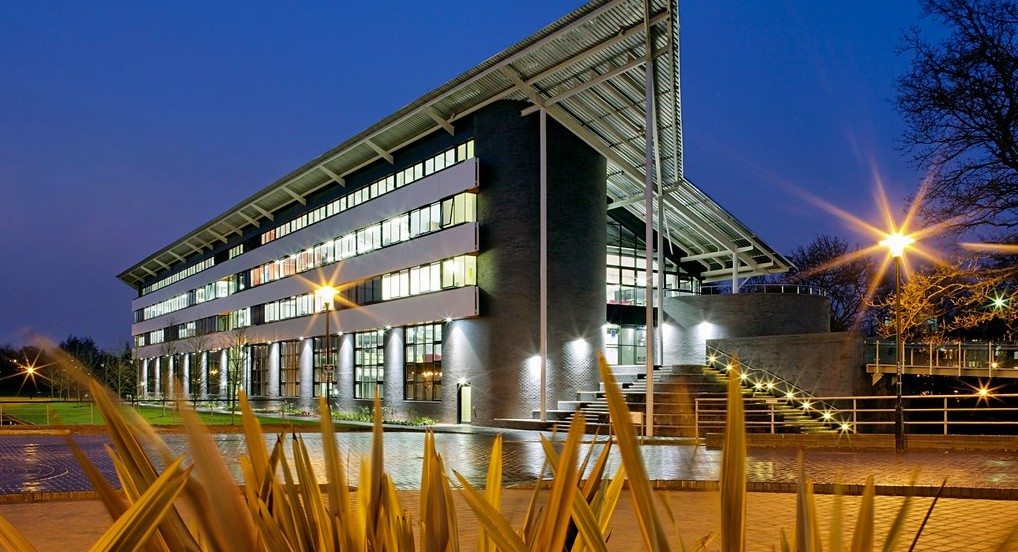
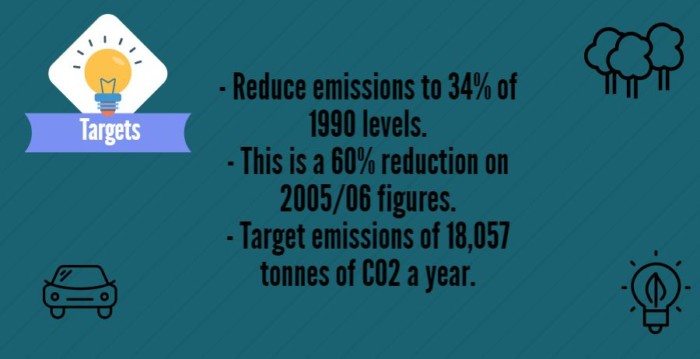
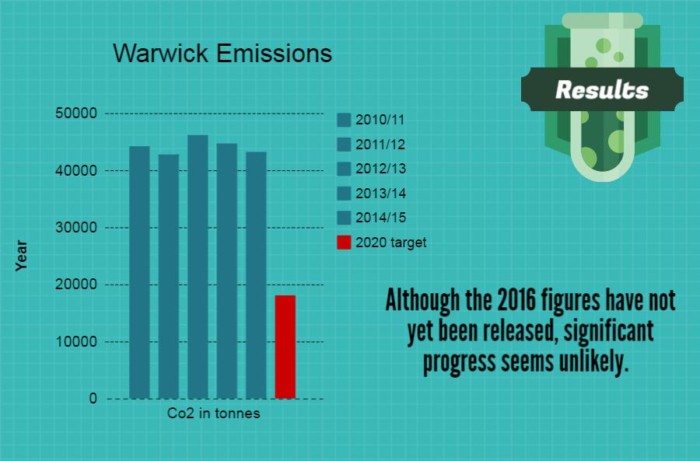
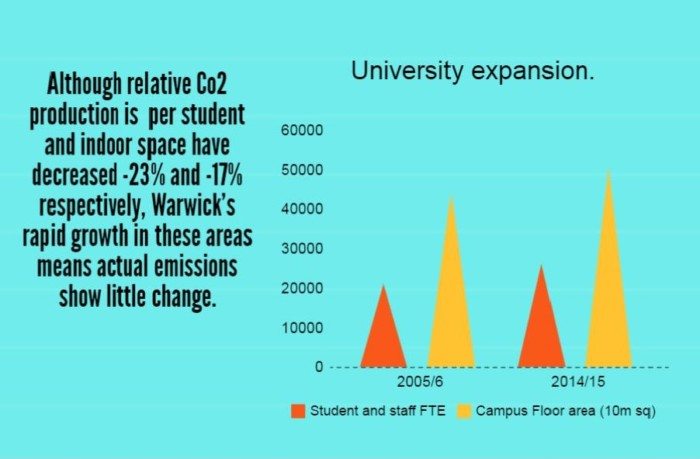
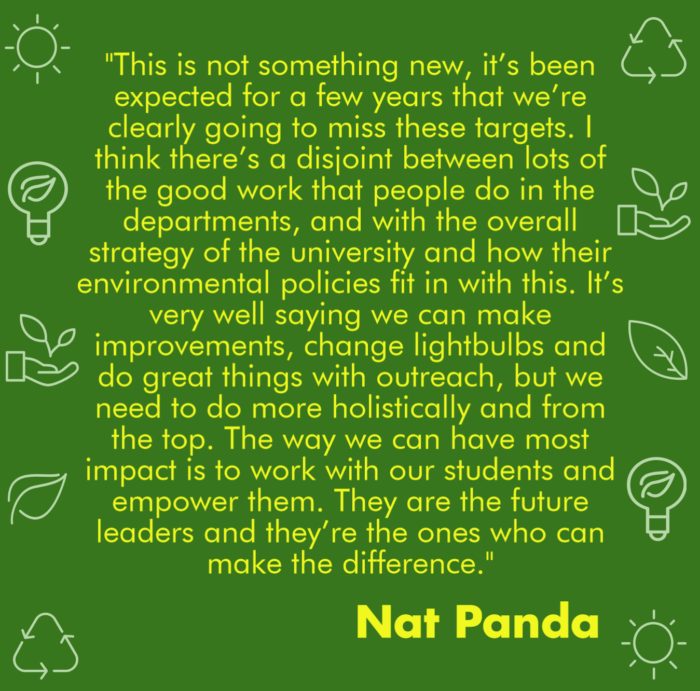
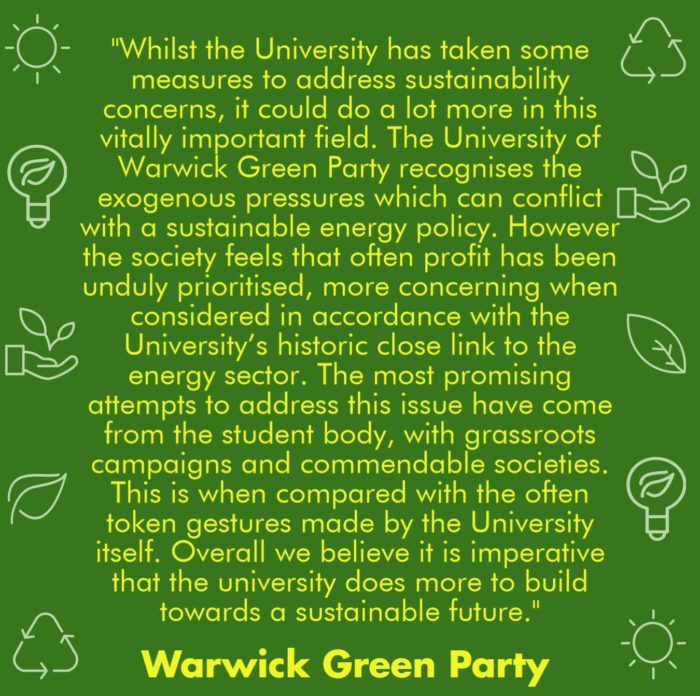
Comments